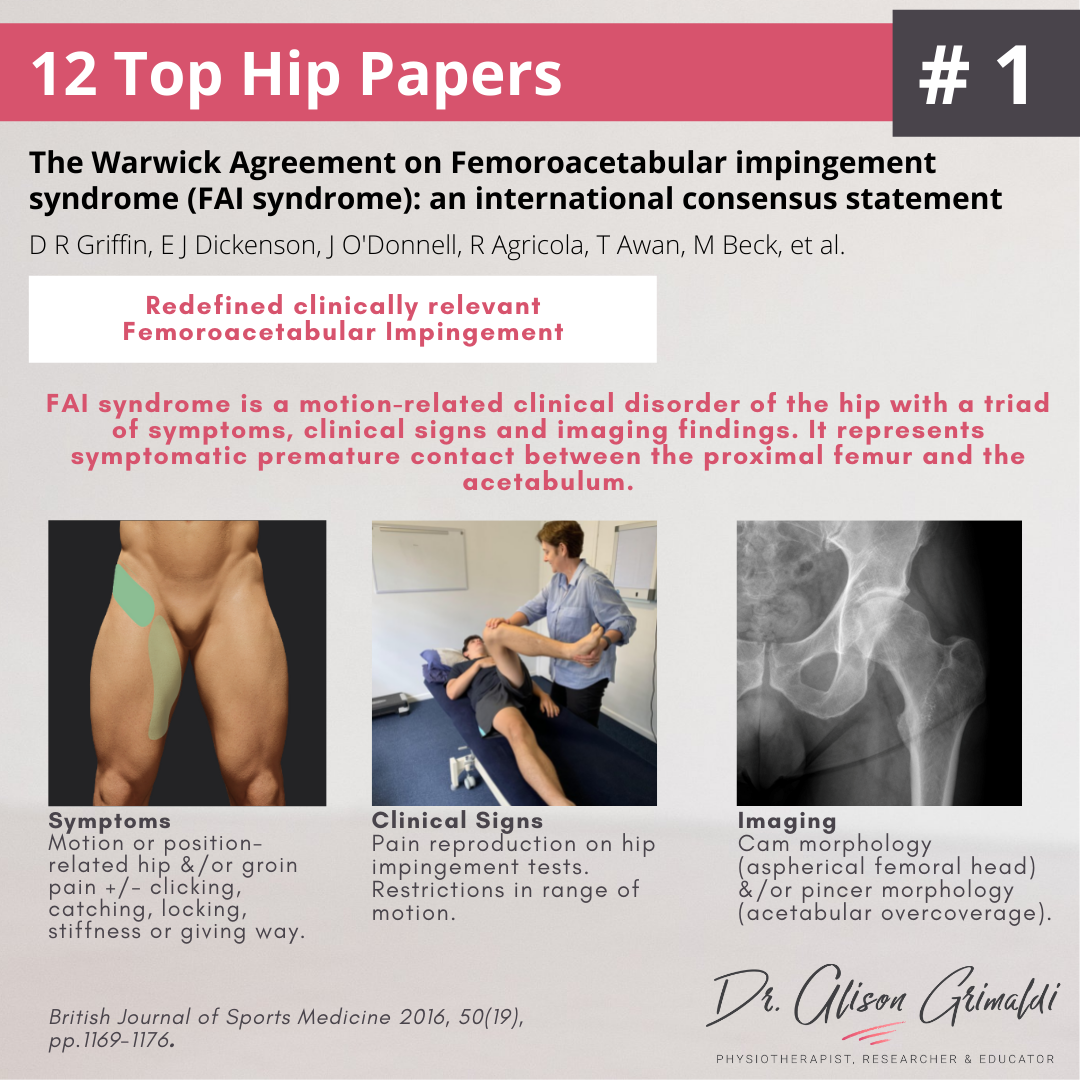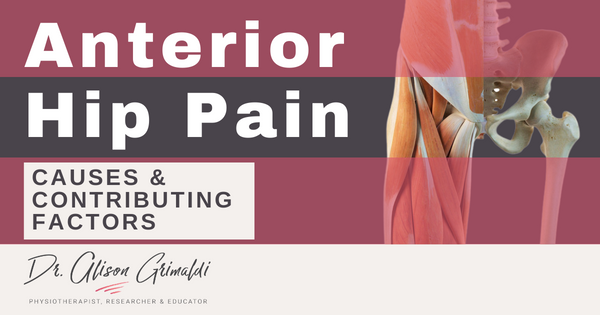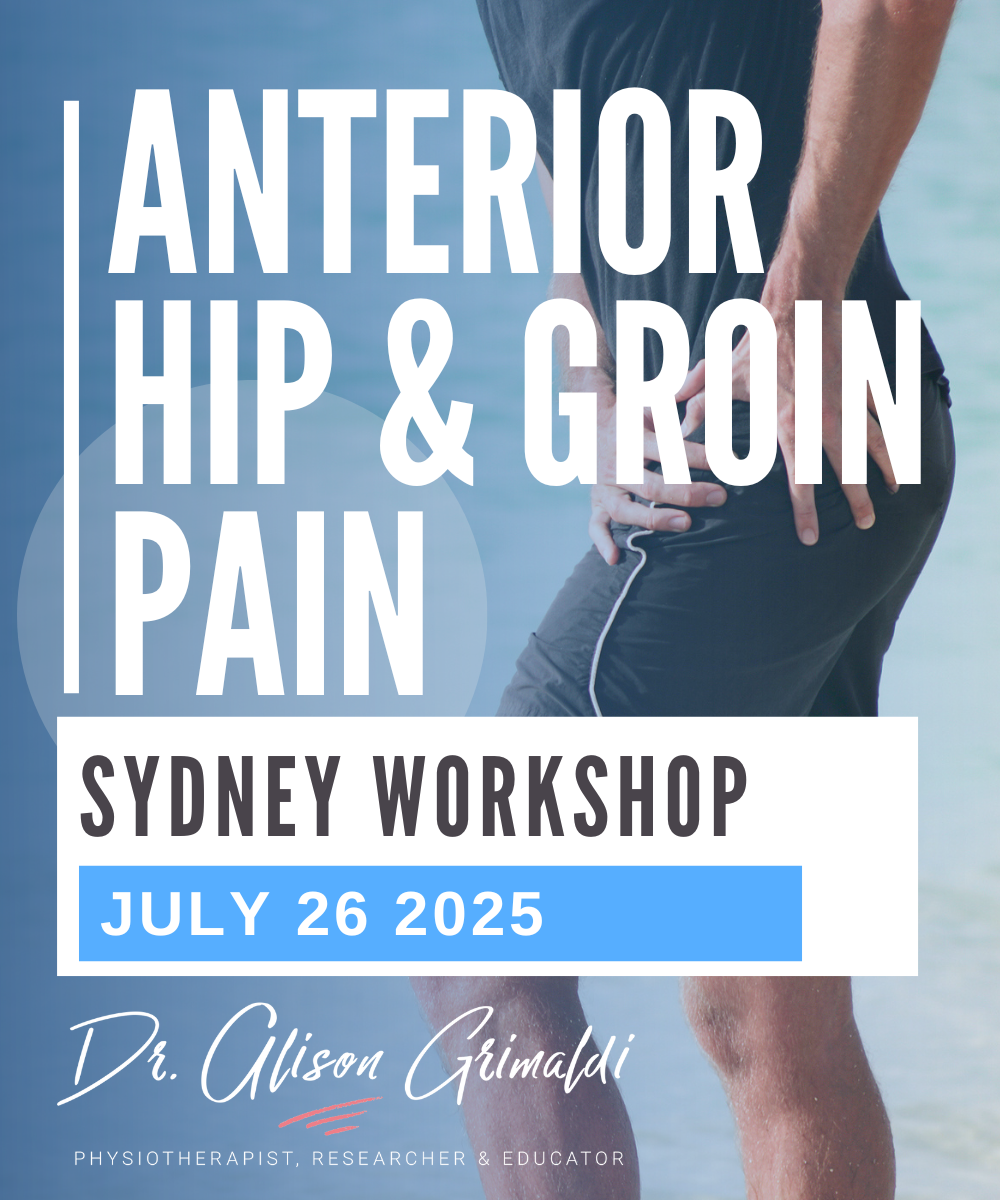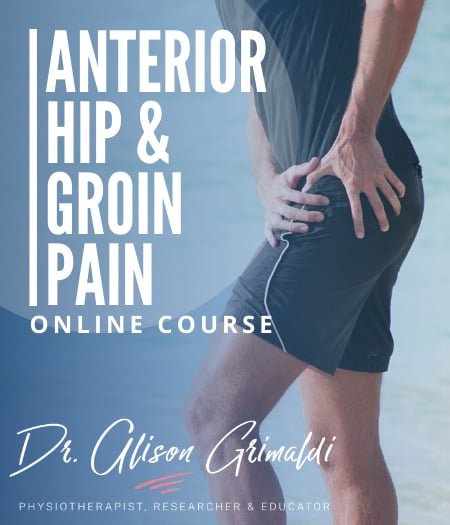1 of 12 Top Hip Papers – Defining Femoroacetabular Impingement Syndrome

Welcome to my 12 Top Hip Papers series of miniblogs of 2021. Some of you might have joined me for my 12 Hip Tips series in December of 2020. This year I've decided to feature 12 papers that have contributed strongly to our understanding of hip conditions and/or the assessment or management of hip pain or injury. There will be a specially prepared infographic and key learnings for each paper. Quick but info-packed reads for this busy time of year. Kicking off for day one is this important consensus paper that defines femoroacetabular impingement syndrome, redefining clinically relevant femoroacetabular impingement.
Can't make the workshop? Do the Online Course

For your convenience, we have also developed this content into a FREE 26-page full colour ebook!
Packed full of 12 Top Hip Papers - peer reviewed scientific papers that have contributed to our understanding of hip conditions and/or the assessment or management of hip pain or injury.
PAPER 1: The Warwick Agreement on femoroacetabular impingement syndrome (FAI syndrome): an international consensus statement
In the 10 years prior to this consensus paper, the world saw rapid increases in surgical ‘correction’ of ‘femoroacetabular impingement.’ Many surgeries were occurring in painfree individuals, with the intended purpose to prevent the development of osteoarthritis. This explosion of invasive procedures was of concern, as the relationship between cam and pincer morphologies, pain and development of osteoarthritis was still unclear. Furthermore, the level of evidence for impact on pain and function was only at a low level with high risk of bias and there was no evidence of the impact of such surgeries on altering the course of degenerative joint change. Surgical decisions were often being made on imaging findings alone. Something needed to be done to gain consensus on what constituted a clinically meaningful presentation of femoroacetabular impingement.

Key learnings about defining femoroacetabular impingement:
This expert panel agreed that:
- The recommended terminology should include the following terms: FAI syndrome, cam morphology, pincer morphology, and the following terms should be avoided: asymptomatic FAI, symptomatic FAI, FAI morphology, deformity, abnormality or lesion.
- Symptoms, clinical signs and imaging findings must be present to diagnose FAI syndrome.
- Management includes patient education & load management, physiotherapist-led rehabilitation, pharmaceuticals, and surgery.
- Preventive measures may have a role in higher risk populations, but surgery in asymptomatic individuals is rarely indicated.
Another great Anterior Hip Pain blog

Anterior Hip Pain: Causes & Contributing Factors
Adequate consideration of individual causes and contributing factors is important for best outcomes.

Join Hip Academy Today
Join Hip Academy Today
By becoming a member today you can enjoy the benefits of a world class educational Hip Program, specifically designed by Dr Alison Grimaldi to help improve your knowledge surrounding the Hip and Pelvis, and become an expert in your field.
By becoming a member today you can enjoy the benefits of a world class educational Hip Program, specifically designed by Dr Alison Grimaldi to help improve your knowledge surrounding the Hip and Pelvis, and become an expert in your field.
Like to learn more about assessment and treatment of patients with femoroacetabular impingement syndrome?
In this course, you can find detailed information on pathoaetiology, assessment and management of anterior hip pain associated with femoroacetabular impingement syndrome and many other conditions.



